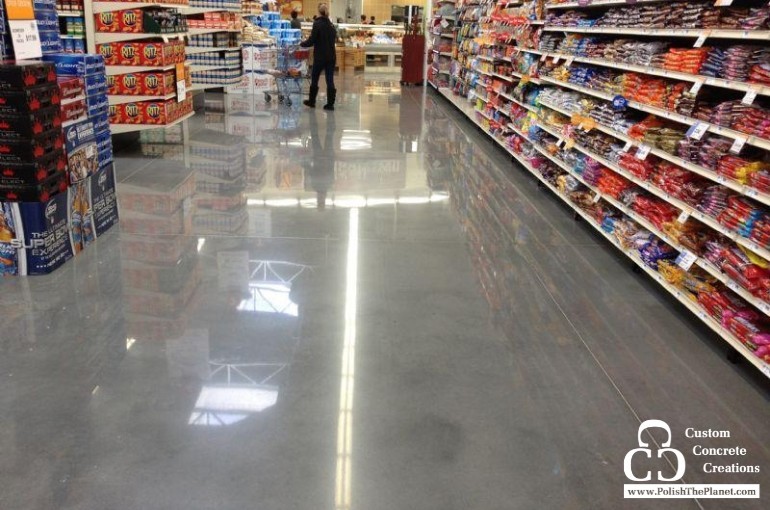
As the seasons change, so do the challenges that come with keeping indoor environments clean, healthy, and comfortable. For many, the arrival of fall brings relief from the heat of summer—but it also marks the beginning of allergy season. Ragweed pollen, mold spores from damp leaves, and fluctuating indoor air quality can all trigger allergy symptoms. For restaurants, offices, and retail spaces, maintaining a clean and allergen-resistant environment is critical not only for employees but also for guests and customers.
One powerful way to combat seasonal allergy issues is through flooring choices, and polished concrete floors stand out as a solution that directly supports cleaner, healthier spaces.
Why Floors Matter in Allergy Season
Floors are often the largest surface area in a building, and they play a surprisingly big role in indoor air quality. Traditional flooring like carpet traps dust, pollen, and allergens deep within its fibers, making it difficult to keep clean even with routine vacuuming. Vinyl and tile can also present challenges, as grout lines and seams collect dirt, moisture, and allergens over time.
Polished concrete, on the other hand, offers a seamless, non-porous surface that resists allergen buildup. Because there are no fibers or deep grooves, dust and pollen sit on the surface, ready to be removed with simple maintenance. This not only improves the overall cleanliness of a space but also reduces triggers for allergy sufferers.
Easy to Clean, Easy to Maintain
One of the significant advantages of polished concrete is how simple it is to clean. A microfiber mop and a pH-neutral cleaner are typically all that’s needed to keep the surface free from dust, dirt, and seasonal pollen. For restaurants and food service establishments, where cleanliness is paramount, polished concrete can be integrated seamlessly into daily restaurant floor cleaning routines. With no waxing, stripping, or harsh chemicals required, maintenance is straightforward and cost-effective.
As the fall season progresses, allergens like mold spores from damp outdoor air can easily be tracked indoors. Polished concrete makes cleanup fast and effective, preventing allergens from lingering in entryways, dining rooms, and back-of-house areas. The result is a healthier, more comfortable environment for guests and staff alike.
Long-Term Benefits for Businesses
Beyond immediate allergy relief, polished concrete also provides long-term durability and savings. Its dense surface resists stains, spills, and moisture—common issues in restaurants during the fall and winter months when wet leaves, salt, and slush are carried inside. With proper care, these floors can last decades, making them one of the most sustainable and cost-efficient options available.
For hospitality businesses, polished concrete not only reduces allergens but also enhances the appearance of a space. A glossy finish brightens interiors by reflecting light—helping to offset shorter fall days and reducing energy costs. And since polished concrete ties easily into existing restaurant floor cleaning protocols, it’s a practical choice that benefits both operations and aesthetics.
A Cleaner, Healthier Season
As we transition into cooler weather, businesses must consider how their spaces impact the well-being of both customers and staff. Floors are a critical piece of that puzzle. By choosing polished concrete, you’re not just investing in durability—you’re creating an environment that actively resists allergens and supports better air quality.
From reducing dust and pollen buildup to simplifying restaurant floor cleaning, polished concrete provides a smart and sustainable solution for maintaining healthy indoor spaces during allergy season and beyond.
Ready to improve your space this season? Contact Custom Concrete Creations today and let’s create a polished floor that’s durable, sustainable, and allergy-friendly
